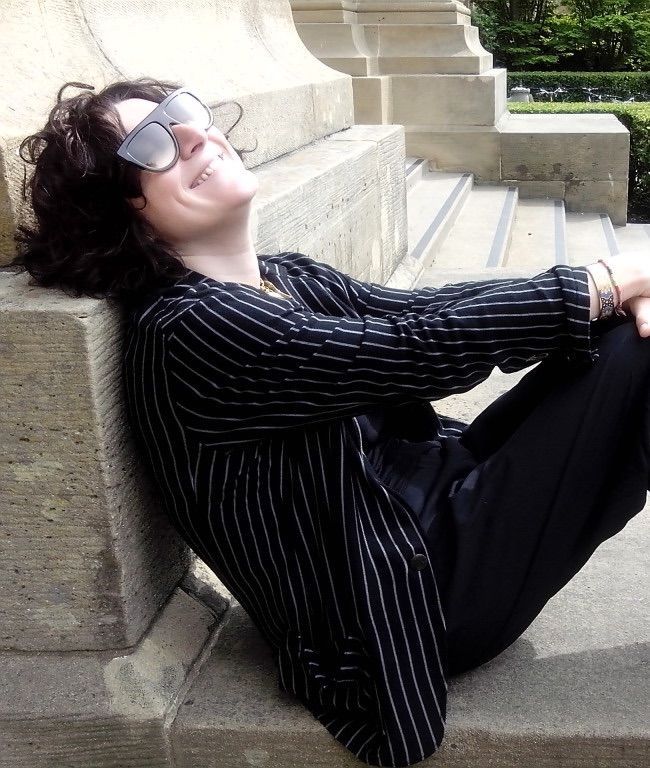Poet Maria Stepanova on Memory and Russia’s “Schizoid Present”
Robert Pogue Harrison interviews Russian poet and essayist Maria Stepanova, author of “In Memory of Memory.”
April 12, 2021

Listen to the episode
Poet Maria Stepanova on Memory and Russia’s “Schizoid Present”
00:00/00:00
“It is something very intimate, the way we communicate with the dead.”
The Guardian called 2021 “the year of Stepanova” for good reason. Russian poet Maria Stepanova’s new book, In Memory of Memory (New Directions), translated by Sasha Dugdale, has been long-listed for the International Booker Prize. Given the incandescent reviews, it is likely to be her break-out book in the West, giving her overdue recognition for works that have made her one of Russia’s most recognized writers. The Russian poet and essayist has two more books out this spring: War of the Beasts and the Animals (Bloodaxe), also translated by Dugdale, and The Voice Over: Poems and Essays (Columbia University Press), edited by Irina Shevelenko.
Entitled Opinions’ host Robert Pogue Harrison interviewed her during her Stanford visit in 2016, and her words are as timely today as they were then. The conversation began with a discussion of one of her other high-profile roles: she’s the publisher of the online Colta, Russia’s first crowd-sourced journal, which has been compared to a Russian Huffington Post and The New York Review of Books combined.
The conversation focused on the Russia’s “schizoid” treatment of the past and present.
She noted that whether he realizes it or not, Putin is performing a parody of Soviet empire. “The main difference is there is no meaning under Putin’s reign — no inner meaning, no hidden meaning, and no explicit meaning … no brand of an idea,” she said. “And so people are disoriented.”
“We’re living in a country where we have a corpse that has been lying in the Red Square for almost a hundred years,” she said. “People still think the dead are the best governors.”
“In Russia, nothing is solid. You're always expecting some ugly turn of reality, in your own biography or in the country's story. Anything can happen,” she continued. “We are prepared to consider our present state acceptable as long as things don’t get worse.” Media has been replaced by propaganda, and unreliable sources have replaced informed knowledge. “The experts sitting at the roundtable are different kinds of freaks — futurologists, conspiralogists, astrologists, whatever. … Nothing is real.”
What role for poetry? Stepanova sees some positive aspects to the current turmoil: “Now the poetry audience is getting much, much wider — maybe it’s what happens in times of big historical shifts, when people are expecting poetry to give them some kind of an answer — or maybe a question.”
Stay tuned also for Stepanova’s impressive, intensely musical reading of her poem, “The Women’s Changing Room at ‘Planet Fitness.’” (Robert Harrison reads the poem in English.)
Cynthia L. Haven interviewed Stepanova for the Los Angeles Review of Books here. An article about Maria Stepanova's recent Stanford talk is here.
“Even our inner reality is ruled by the dead. They are the inner deities.”
Did you know LARB is a reader-supported nonprofit?
LARB publishes daily without a paywall as part of our mission to make rigorous, incisive, and engaging writing on every aspect of literature, culture, and the arts freely accessible to the public. Help us continue this work with your tax-deductible donation today!